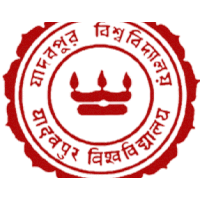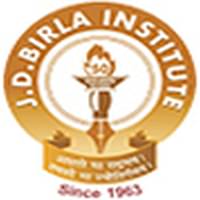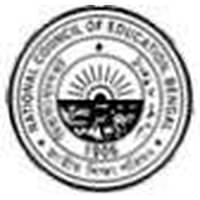Table of Contents
Jadavpur University Hostel Fees 2026
Hostel and mess charges at Jadavpur University are given in the table below:
| Particulars | Single Room | Double Sharing | Triple Sharing |
|---|---|---|---|
| Hostel Charges | INR 3,000 | INR 2,400 | INR 2,100 |
| Mess Charges | INR 18,000 | INR 18,000 | INR 18,000 |
| Other Charges | INR 3,000 | INR 3,000 | INR 3,000 |
| Total Fees | INR 24,000 | INR 23,400 | INR 23,100 |
Top Courses at Jadavpur University
Jadavpur University Reviews
Infrastructure: Wi-Fi is available on campus, and the well-maintained seminar rooms, large lecture halls, and smart classrooms all contribute to an engaging learning environment. One of the main attractions is the central library, which has a large collection of books and journals.
Hostel: There are separate dormitories with sanitary dining areas and adequate security for males and girls. With great access to transportation and environmentally favorable surroundings
Infrastructure: sparred over sparrowing green campus the University boosts state of the infrastructure into smartphones who eligible their laboratories and their executive library with digital access to journal books
Hostel: The hostel is designed to provide a safe comfortable and conductive environment for academic and classmate girls each supervised by quadrants to ensure discipline and security
Infrastructure: Spirit over a sparrow in green campus the university boards state of the artefact structure including smart classroom oil equity laboratories and an expensive library with digital access to journals and ebooks
Hostel: The hostel is designed to provide a safe comfortable and conductive environment for academic and personal growth they are a separate hostel for boys and girls each supervised by Warrens
Infrastructure: Jadavpur University has a campus that beautifully blends heritage with functionality. The academic buildings carry a vintage charm, while some newer blocks are well-equipped with modern classrooms, labs, and research facilities. The central library is quite resourceful and spacious, making it a favorite spot for many students. However, a few departments still need renovation and better maintenance. The campus is lush with greenery and has ample open space, which adds to the overall positive environment. Wi-Fi is available but can be inconsistent in some areas
Hostel: The hostel facilities at Jadavpur University are decent, but they do come with a mix of pros and cons. The atmosphere is generally friendly and filled with a strong sense of community. It's a great place to meet people from different backgrounds, and hostel life here does add a unique charm to the overall college experience. However, the infrastructure could use some improvement. Rooms are quite basic, and maintenance can sometimes be slow.
Infrastructure: On the infrastructure front, the university offers a solid foundation for advanced research work. Research labs are up to date with essential equipment, and the library’s vast collection of books, journals, and digital resources has been invaluable. Common spaces are well maintained, providing areas for discussion and collaboration. Internet connectivity is generally stable, though high-bandwidth needs during data-heavy work could benefit from faster speeds. The cafeteria offers basic options for a quick meal or coffee break, but more variety would be welcome during long days on campus. Sports and recreation facilities exist but could be expanded to better support students’ well-being. Overall, the university’s infrastructure is reliable.
Hostel: Living on campus during my PhD offered convenience and peace of mind. The hostel accommodation is functional and provides the basics — clean rooms, secure premises, and constant access to drinking water. It’s generally a quiet place, which is vital when balancing research deadlines and long reading hours. The mess food is decent, though repetitive; variety and better quality could make daily life more pleasant. Maintenance staff do a commendable job, but response times for repairs could be faster. Wi-Fi is available, though occasional downtimes can disrupt work. All in all, the hostel is a sensible choice for researchers who prefer proximity to labs and the library, but small improvements would make it much more comfortable.
Infrastructure: The infrastructure of the college is pretty basic. Classrooms are usable, but many of them lack proper ventilation, modern teaching tools, or comfortable seating. Some blocks are better maintained than others, but overall, things feel a bit outdated. Labs and the library are there, but not all of them are fully equipped or regularly updated. Wi-Fi is available on campus, but the speed and coverage can be unreliable. Washrooms and common areas also need better and more frequent cleaning.
Hostel: The food in the mess is average — sometimes manageable, sometimes not. There’s very little variety, and it can get repetitive quickly. There are strict rules, especially regarding entry/exit timings, and at times it feels a bit too restrictive. There’s no real effort to make the hostel feel like a second home. Common spaces are limited, and the atmosphere is pretty dull. It serves the purpose of accommodation, but that's about it.
Infrastructure: The college infrastructure is fairly good with spacious classrooms, a decent library, and computer labs. The campus is clean and well maintained. Wi-Fi is available in most areas, although the speed can be inconsistent. The canteen offers limited food choices, but seating is ample. Sports facilities are available but need better upkeep. Overall, the infrastructure supports learning, though there’s scope for modernization and expansion.
Hostel: The hostel is decent and provides all the basic stuff you need—clean rooms, drinking water, and 24/7 security. It’s generally peaceful, which makes it a good place to focus on studies. The mess food is okay—some days it’s good, other days not so much. Washrooms are cleaned regularly, but sometimes maintenance takes a while. There’s Wi-Fi, but it can be unreliable. Overall, it’s a safe and affordable option for students, but better food and a little more attention to cleanliness would really make a difference.
Infrastructure: Very nice laboratory. Lot of magazine and need type of modern books. Huge collection of lot of experiment and videos. Tie up with lot of other institutions in the world
Hostel: Hostel of Jadavpur is famous for good and bad reason. Good tie up and disciplined life inside hostel. Lot of group studies. Ragging is the worst experience there.
Infrastructure: Jadavpur University has a ***fully developed and integrated infrastructure*** that blends modern facilities with historical contributions, enriching both the academic and social life of students. Following is a breakdown of the provided facilities: * **Academic Libraries and Other Scholarly Assets** * The **History Department maintains an impressive collection** of over 10,000 books and journals which are essential reference materials housed in department’s library. * The department also provides cubicles for serious scholarly activities. These include a **seminar hall, a research scholars' room, and a reading room.** * Students are most certainly able to access library services as well as reading rooms during examinations [previous conversation]. In their efforts to support students academically, they tend to nprovide flexible hours during examination periods. * The university also hosts other libraries at central level. A good example is the **Central Library**, which holds numerous books and magazines in addition sspecially scholarly ones spanning five floors. * **Technological Investment in Classrooms** * The qualitative aspect of learning increases many folds with modern amenities such as smart classrooms equipped with **projectors and microphones**.
Hostel: The sources do indicate that senior history students regularly assist juniors with accommodation. This suggests that accommodation is a relevant aspect of student life, and there is a supportive community to help new students navigate it. The "Old Boys Home" on campus was later renamed the "Alumni Building" to include female graduates, symbolizing the enduring community. These developments highlight a commitment to ongoing infrastructure enhancement
Infrastructure: JU’s infrastructure is a mix of historic and modern facilities spread across **56 acres**. The **Central Library** houses over 6.4 lakh books, 80,000 journals, and digital resources like Scopus and e-books. Labs are equipped with advanced tools (CAD, VLSI, AI labs), though some need upgrades. Sports facilities include cricket/football grounds, indoor stadiums, and courts for badminton, basketball, and tennis. The campus has **24/7 Wi-Fi**, medical centers, and multiple canteens. However, classrooms lack air conditioning, and Salt Lake Campus (26 acres) is better maintained. The **NAAC Grade ‘A’** reflects its commitment to quality, but expansion projects are slow.
Hostel: JU offers **13 hostels** (9 for boys, 4 for girls) with **1,600+ beds**. Rooms are shared (2–3 students), except at Salt Lake Campus, which has single rooms. Fees are affordable: **₹3,000** advance (includes mess), ₹35/month rent, and ₹1,500/month for meals. The mess serves hygienic veg/non-veg meals, managed by student committees. Hostels have **24/7 security, CCTV, and Wi-Fi** (limited hours). However, seats are prioritized for economically disadvantaged students, and the application process is competitive. Strict rules prohibit smoking/alcohol. While cleanliness is maintained, some hostels lack maintenance. Off-campus PGs are popular alternatives.
Related Questions
Admission Updates for 2026
Chandigarh University
Mohali (Punjab)
Institute of Engineering and Management
Kolkata (West Bengal)
CGC Landran
Mohali (Punjab)
Ramaiah University of Applied Sciences
Bengaluru (Karnataka)
University of Engineering and Management
Kolkata (West Bengal)






